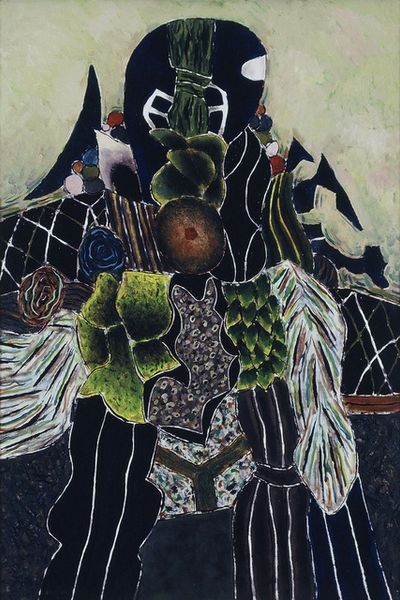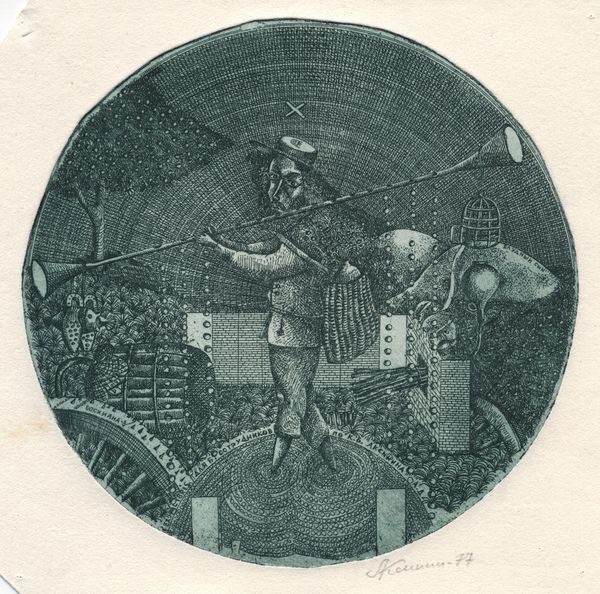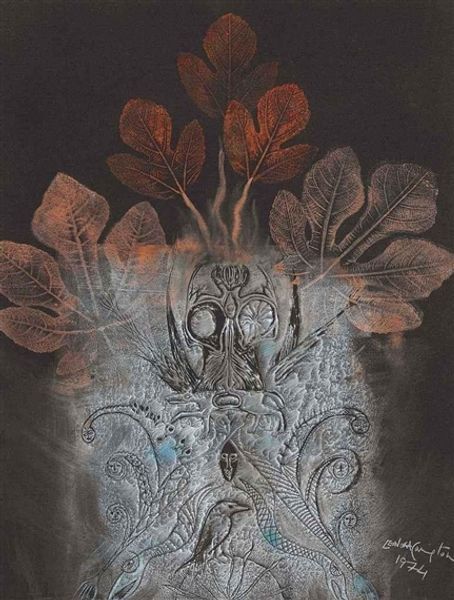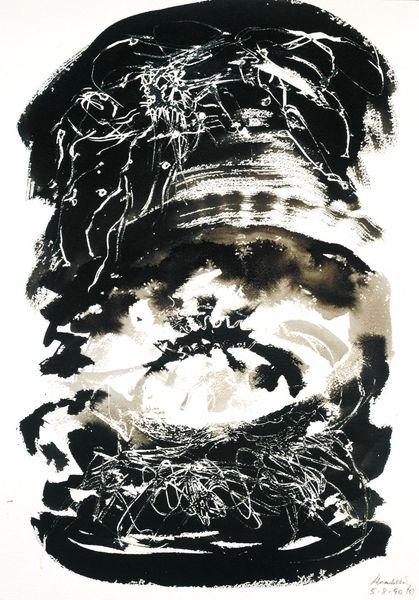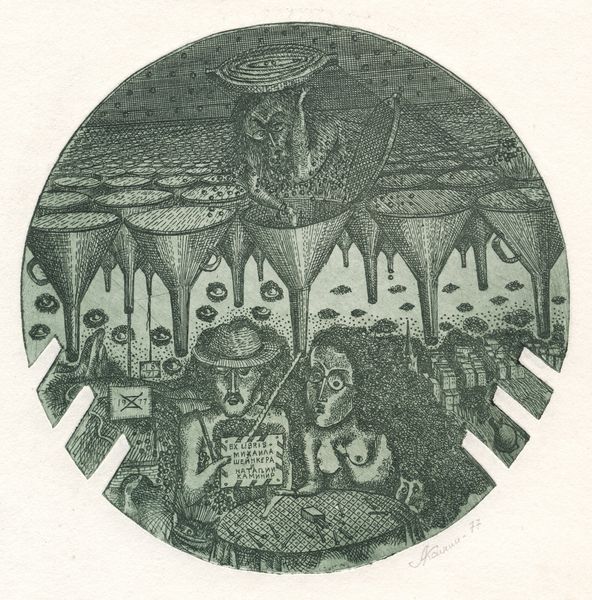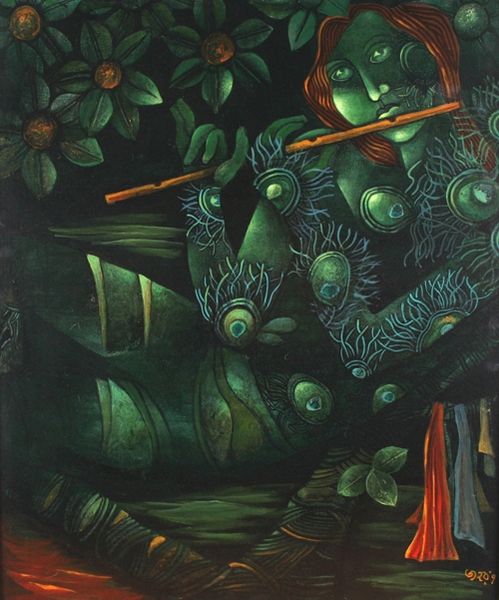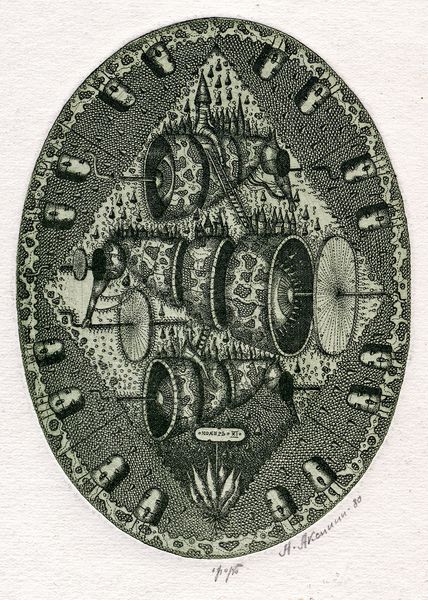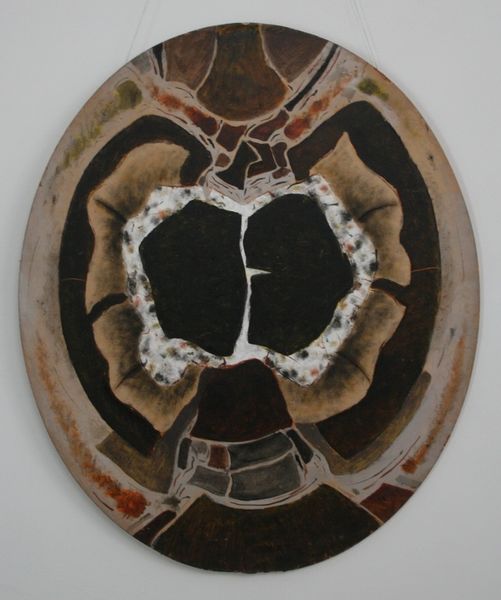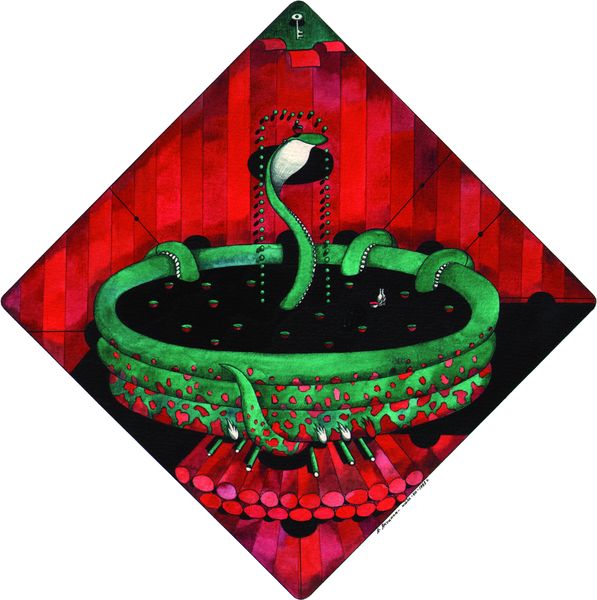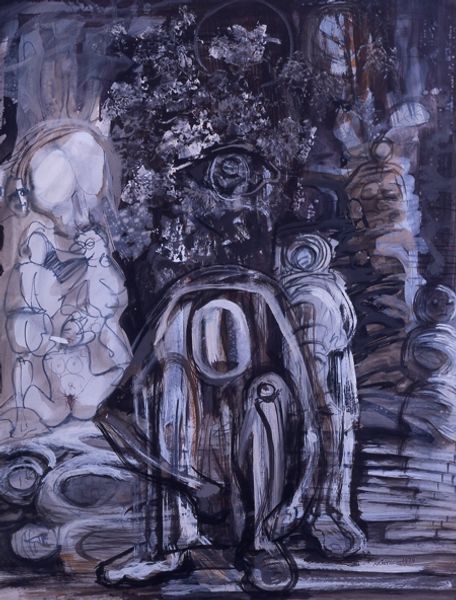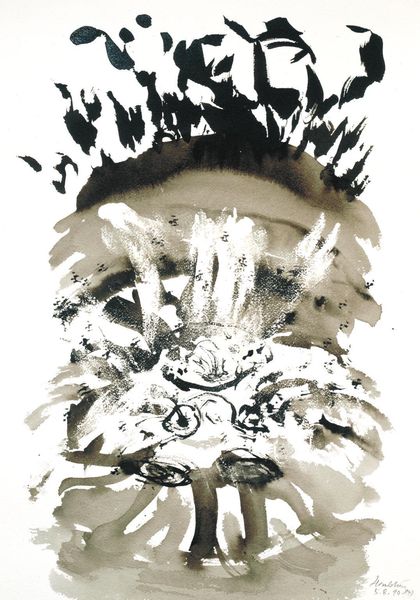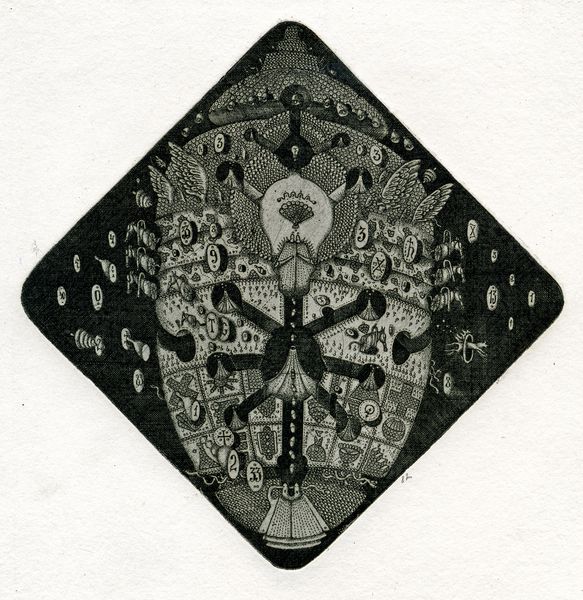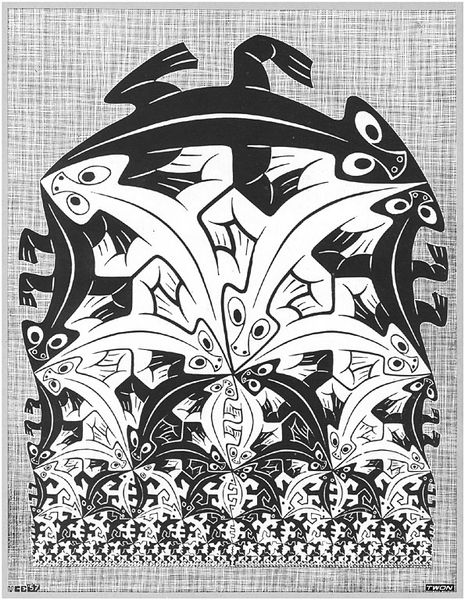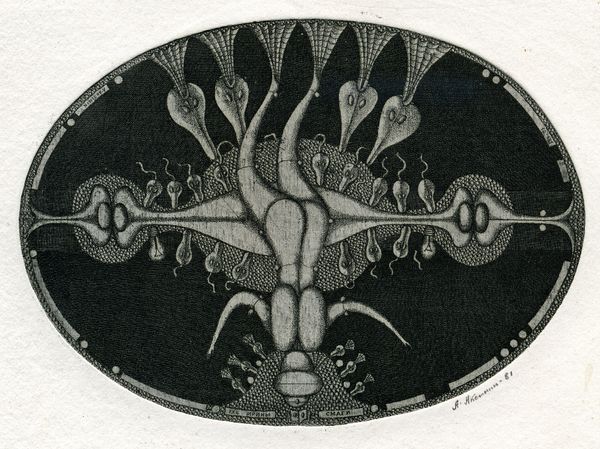
mixed-media, painting, oil-paint
#
cubism
#
mixed-media
#
organic
#
painting
#
oil-paint
#
landscape
#
oil painting
#
folk-art
#
geometric
#
expressionism
#
cityscape
#
modernism
Dimensions: 34.5 x 29.5 cm
Copyright: Public Domain
Paul Klee made "The Thistle Flower House" at an unknown date with oil paint on fabric, mounted on cardboard. It's a little world, isn't it? The paint is built up layer upon layer, a crust of colour. Look at the way the pinky-red of the lower part of the house contrasts with the white and green of the buildings to the left. Each brushstroke feels like a decision, a little push and pull between control and letting go. And then, there's that central flower, kind of like a sun, but floral, watching over everything like the all-seeing eye, or maybe just a really big daisy. Klee's works remind us that art is an ongoing conversation. He was definitely having a conversation with the surrealists, like Joan Miró, pushing the boundaries of representation, making art that feels like a dreamscape. It's not about having all the answers, it's about embracing the questions, the uncertainties, and the beautiful, messy process of making.
Comments
stadelmuseum over 2 years ago
⋮
Klee created this painting the same year he had finally been discharged from military service in the First World War. He settled in Munich and, for the first time, was intent on painting only in oil. Therein, plant and garden motifs played an important role. Klee gave his works poetic, enigmatic titles that went well with his playful painting style. He used them to steer the viewers’ perception of his art into a certain direction. In this case, the thistle hovering above the mysterious building as a symbol of Christ’s suffering is reminiscent of medieval art – which Klee had studied in much detail.
Join the conversation
Join millions of artists and users on Artera today and experience the ultimate creative platform.
